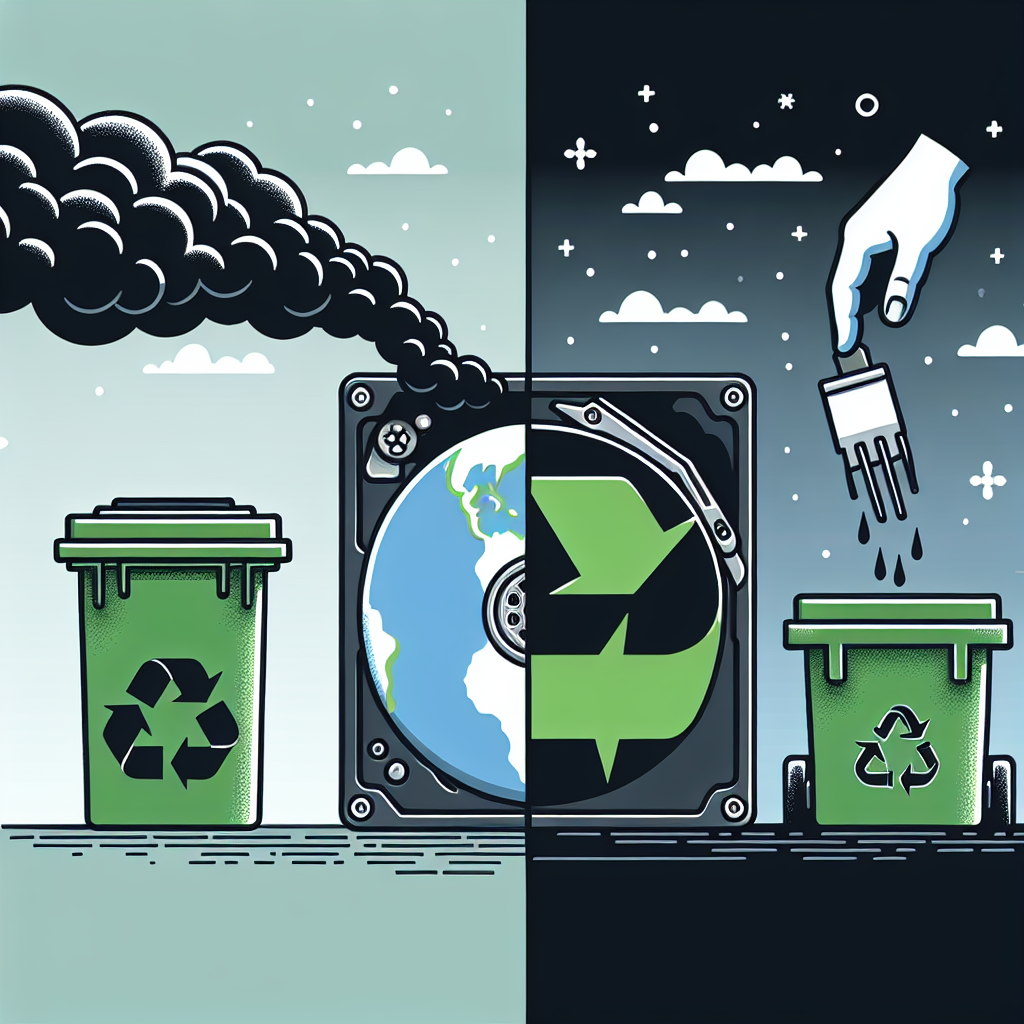Hard disk drives (HDDs) are essential components of modern computers, storing all of our important data and files. However, the environmental impact of HDDs can be significant if not disposed of properly. From the materials used to make them to the energy required to manufacture and operate them, HDDs can have a negative impact on the environment if not recycled and disposed of correctly.
One of the main environmental concerns with HDDs is the materials used to make them. HDDs contain various metals, such as aluminum, copper, and precious metals like gold and silver. These materials are mined from the earth and can have a significant impact on the environment through deforestation, water pollution, and habitat destruction. Additionally, HDDs contain hazardous materials like lead and mercury, which can be harmful to human health and the environment if not disposed of properly.
Another environmental impact of HDDs is the energy required to manufacture and operate them. The production of HDDs requires a significant amount of energy, contributing to greenhouse gas emissions and climate change. Additionally, HDDs consume electricity while in use, adding to our overall energy consumption and carbon footprint.
To mitigate the environmental impact of HDDs, it is crucial to recycle and dispose of them properly. Recycling HDDs allows for the recovery of valuable materials like metals and reduces the need for new mining and manufacturing. Additionally, recycling prevents hazardous materials from entering the environment and harming ecosystems and human health.
There are several ways to recycle and dispose of HDDs properly. Many electronics retailers and manufacturers offer recycling programs for old HDDs and other electronic waste. These programs ensure that HDDs are recycled in an environmentally responsible manner, with materials recovered and hazardous substances safely disposed of.
Another option is to donate old HDDs to organizations that refurbish and reuse them. By extending the lifespan of HDDs through reuse, we can reduce the demand for new devices and lessen the environmental impact of manufacturing.
Ultimately, it is essential for individuals and organizations to take responsibility for the environmental impact of their HDDs. By recycling and disposing of HDDs properly, we can reduce the strain on natural resources, prevent pollution, and contribute to a more sustainable future.

Leave a Reply
You must be logged in to post a comment.